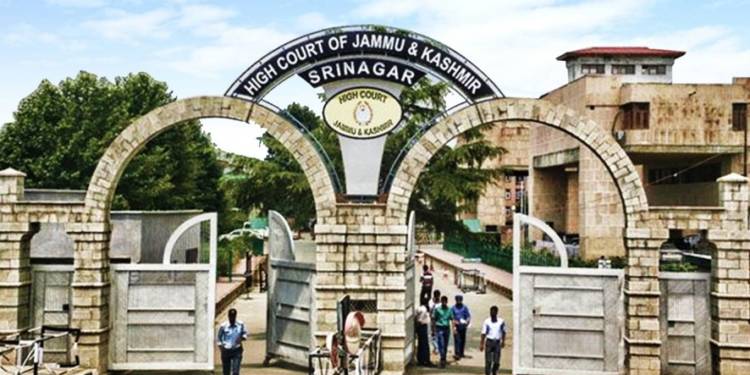The Jammu & Kashmir High Court has made some important observations about the bi-annual ‘Darbar Move’ which entails huge expenditure in transferring Secretariat paraphernalia between the two seasonal capitals of the Union Territory of Jammu and Srinagar.
The 148-year-old exercise was started in 1872 by Dogra ruler Maharaja Ranbir Singh, after whose name the Penal Code of the erstwhile state of Jammu & Kashmir was also enacted.
The objective of the move started by the Dogra ruler was to maintain vigil over both the regions- Jammu and Srinagar and to counter the alienation of the Dogra rulers being perpetrated by the Islamist leadership in the valley. But the practice has continued even after Independence and accession of Jammu & Kashmir to India.
Moreover, the Dogra ruler wanted to escape the harshness of winters at Srinagar which is why the entire records of state administration were shifted between the seasonal capitals twice a year.
This year however the outdated practice stands halted after the Jammu & Kashmir government announced the opening of annual Darbar move offices in Srinagar- the summer Capital of Jammu & Kashmir on May 4, but made it clear that the employees shall work on “as is where is” basis.
For the first time in 148 years, Jammu & Kashmir won’t be making wasteful expenditure on the relocation of a plethora of files, employees and other Secretariat paraphernalia. The Jammu & Kashmir administration has cited the Coronavirus Pandemic as the reason for halting this bi-annual exercise.
Meanwhile, the Jammu & Kashmir High Court has asked the Centre and the Union Territory to look into this nineteenth-century practice of bi-annual ‘Darbar Move’ and its financial implications.
In a 93-page judgment, a Division Bench consisting of Chief Justice Gita Mittal and Justice Rajnesh Oswal suggested that the practice be abolished.
The High Court asked, “Can any Government afford the annual expenditure of at least Rs 200 crore to sustain and perpetuate an arrangement of bi-annual shifting of its Capital two times a year, which originated in 1872 from the discomfort of the then Ruler of Jammu and Kashmir with the harshness of the winter in Kashmir?”
The bench added, “More so, is this acceptable in a hopelessly fiscally deprived UT with severe underdevelopment and people deprived of bare basics which are an essential part of their fundamental right of life guaranteed under Article 21 of the Constitution of India?”
The matter of abolishing the 148-year old practice undoubtedly lies with the executive and not the judiciary, which is why the Jammu & Kashmir High Court too has not issued any express directions to the government, expressing its inability to pass an order.
The Court stated that it had listed its “limitations on the extent of our jurisdiction whereby we stand precluded from making a declaration on the permissibility or the continuation of the practice of the Darbar move”.
It is, of course, true that there are limitations upon the jurisdiction of the Court when it comes to policy matters and the final decision of abolishing or continuing the practice rests with the executive.
But the Court has made some pertinent observations here, and this is not the first time that the question of the futility of the Dogra dynasty-era practice have come up in the Valley.
In 1987, Farooq Abdullah, then Chief Minister of the erstwhile state of Jammu & Kashmir tried to stop the practice of Darbar move by keeping the Secretariat in Srinagar open throughout the year.
But the move had faced a backlash from the Jammu region spearheaded by the Jammu Bar Association because people in this part of the state remained apprehensive of the Islamist leadership from politically dominant Valley trying to undermine the aspirations of the Jammu region.
The bi-annual practice is itself a colossal logistics exercise that puts an immense burden on the State exchequer only in order to continue an archaic nineteenth-century practice that has no relevance in today’s era.
In 1872, the Dogra ruler was not answerable to anyone for the massive expenses incurred, but the present-day government is.
There is a vast array of expenses involved- transportation of government employees, relocation of official files and records, accidents that can cause loss of stores and documents, retainment of employees’ families at one seasonal capital and re-deployment of the employee at the other capital.
Demands were again raised for ending this practice when Mehbooba Mufti was in power, but there was not much progress on this front. But now the Union Territory administration must consider bringing an end to it. Article 370 stands abrogated and there is no danger of dominant political elements from Kashmir valley dominating the Jammu region.
As such the question of regional insecurities no longer exists, and the situation is tailor-made to get rid of the 148-year old, futile practice.




















